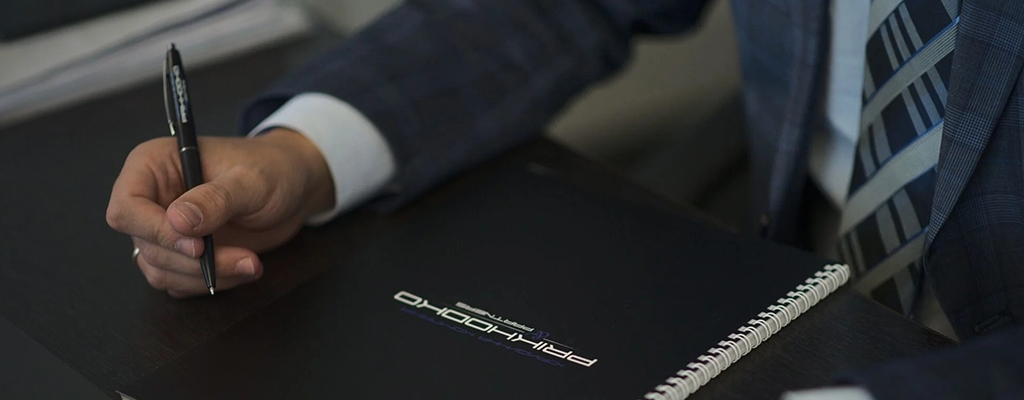
«Everyone who cooperates with us frees himself from onerous loans. We process bankruptcy "on a turnkey basis" throughout Ukraine!»
Assistant lawyer
Specialist in bankruptcy of individuals and legal entities. Provides legal support in bankruptcy procedures for individuals, private limited liability companies, legal entities, as well as closing executive proceedings, concluding restructuring and settlement agreements with financial institutions
Opening of bankruptcy proceedings
With the entry into force of the Code of Ukraine on Bankruptcy Procedures (hereinafter referred to as the Code of Bankruptcy Procedures), the procedure for initiating bankruptcy proceedings, in particular, the grounds for opening bankruptcy proceedings, has changed significantly.
According to parts 2 and 3 of Article 8 of the Code of Civil Procedure, both the debtor and the creditor have the right to submit an application to the commercial court to open bankruptcy proceedings.
The court may initiate a bankruptcy case at the request of the debtor even if there is a threat of his insolvency.

The basis for applying the procedures provided for by the Code of Criminal Procedure to the debtor and, accordingly, for opening proceedings is precisely the fact of his insolvency.
Insolvency, according to the definition of Article 1 of the Code of Civil Procedure, consists in the inability of the debtor to fulfill his monetary obligations to the creditor (applicant) after the set deadline, without applying the procedures provided for by the Code of Bankruptcy Procedures.
Requirements for filing a bankruptcy case
The requirements for the application for the initiation of bankruptcy proceedings are determined by the provisions of Article 34 of the Code of Criminal Procedure. A systematic analysis of Articles 1, 8, 34 and 39 of the Code of Criminal Procedure shows that the grounds for opening bankruptcy proceedings are:
- the existence of a monetary obligation of the debtor to the creditor, the term of which has expired at the time of submitting the application to the court;
- the absence of a dispute between the debtor and the creditor regarding the rights to the claimed claims;
- the debtor has not fully repaid the claims of the creditor (or creditors) before the preparatory court session.
Thus, the key purpose of the preparatory meeting of the commercial court when considering an application to open bankruptcy proceedings is:
- verification of the validity of the applicant’s requirements regarding their compliance with the concept of “monetary obligation” of the debtor to the initiating creditor;
- clarification of the presence or absence of a dispute regarding rights;
- establishing the facts of the debtor’s repayment of requirements before the preparatory meeting.

Standards of proof in bankruptcy proceedings
In view of the serious legal consequences of opening bankruptcy proceedings, which concern not only the applicant and the debtor, but also an undefined circle of persons, such as potential creditors of the debtor and other participants, the court before making the relevant decision (on opening proceedings or refusing to open them ) should carry out a comprehensive analysis of the circumstances. The court examines in detail the legal relations that the applicant refers to in order to substantiate their claims against the debtor, based on the evidence provided. Only after that, the court can determine whether the creditor’s claims are justified, as well as establish whether there is a dispute about the right in this legal relationship, which is an important condition for opening proceedings (Supreme Court ruling of February 16, 2021 in case No. 911/2042/20 ). It is worth noting that a higher standard of proof is applied to the applicant of creditor claims, which the Supreme Court has repeatedly emphasized in its decisions. This heightened standard of proof, along with judicial review, is designed to prevent fictitious accounts receivable from being recognized in bankruptcy proceedings.
This standard in bankruptcy cases includes the following aspects:
- the court verifies the validity and amount of the creditors’ claims, regardless of the existence of disagreements between the debtor and other persons who have the right to file objections, and the creditor who has declared monetary claims against the debtor;
- recognition of creditors’ claims is possible only in the presence of sufficient evidence confirming the existence and amount of debt;
- when considering the creditor’s statement about monetary claims against the debtor in a bankruptcy case, even if the debtor or the arbitration trustee admits the circumstances referred to by the creditor (Part 1 of Article 75 of the Civil Procedure Code of Ukraine), this does not release the other party from the obligation to prove these circumstances in a general manner (conclusion of the Supreme Court of December 22, 2022 in case No. 910/14923/20).
A key element in opening a bankruptcy case is the documentary substantiation of the claims of the initiating creditor. The applicant independently chooses the evidence that, in his opinion, confirms the existence of a debt, which must be proven in accordance with Articles 74, 76–77 of the Civil Procedure Code of Ukraine, taking into account the nature of the legal relationship between the parties.
Restrictions on the initiation of bankruptcy proceedings
Evidence confirming the existence of a debt can be different, but is not limited to only one type of document. Among such evidence, court decisions, concluded transactions, primary accounting documents containing information on the business operations performed and confirming their implementation can be distinguished. Examples of such evidence include bank statements that record financial transactions, payment orders that show attempted or actual payments, expense invoices that confirm the transfer of goods or services, as well as various certificates, official letters, minutes of meetings or negotiations. Other documents that can prove the debtor’s violation of his obligations are also accepted as evidence.
Therefore, before the creditor applies to the commercial court with an application to open a bankruptcy case, he must perform thorough preparatory work. This includes gathering an evidence base that will confirm that his claims are reasonable. In particular, the creditor must prove the legal grounds for the claims, their nature, amount, and the moment they arose. Such preparation is aimed at minimizing the risks of the court refusing to open a bankruptcy case. It is important that all the evidence is sufficient to convince the court that the creditor’s claims meet the criteria of legality.
In addition, applicants need to take into account legal restrictions on the possibility of opening bankruptcy proceedings for certain categories of business entities. This means that for some organizations there are special rules that prohibit the initiation of the bankruptcy process.
Calculate the cost of services
1 question
Are you interested in legal assistance in a bankruptcy case?
2 question
Are you in Kyiv?
3 question
Do you need a service urgently?

Specialist in bankruptcy of individuals and legal entities. Provides legal support in bankruptcy procedures for individuals, private limited liability companies, legal entities, as well as closing executive proceedings, concluding restructuring and settlement agreements with financial institutions
TOP lawyers dealing with such cases in Ukraine
How to order the service? How do we work?
Thanks to the experience and professionalism of bankruptcy lawyers, you will receive qualified assistance at all stages of resolving your debt situation.
Service ordering process:
- Application
- Calling a lawyer
and defining tasks - Contract and payment
- Consultation,
case analysis, specialist work
What is the price for a lawyer's consultation and assistance?
Price for services in the "Bankruptcy" category:
| The name of the service | Price, UAH | Terms |
|---|---|---|
| Bankruptcy of an individual | from 45 000 UAH | from 6 months |
| Bankruptcy of an individual entrepreneur | from 50 000 UAH | from 6 months |
| Sanitation of the debtor in bankruptcy cases | from 18 000 UAH/Month | 12 months |
| Restructuring of the debtor’s debts | from 4 000 UAH | 10 days |
| Restructuring of PrivatBank credit card debt | from 6 000 UAH | 30 days |
| Statement of claim for collection of debt by receipt | from 7 000 UAH | 30 days |
| Restructuring of foreign currency loan | from 7 000 UAH | 30 days |
| Removal of seizure from the debtor’s account | from 7 000 UAH | 30 days |
| Response to the claim for debt collection by receipt | from 10 000 UAH | 6 months |
| Bankruptcy certificate for legal entities | from 3 500 UAH | 3 days |
| Writing off debts and loans | from 75 000 UAH | 3 months |
| Claim for cancellation of debt for communal services | from 8000 UAH | 3 months |
![]() from 4,000 to 244,000 UAH The price is valid for September 2024
from 4,000 to 244,000 UAH The price is valid for September 2024
You may also need:
Bankruptcy
Restructuring debt on a mortgage loan in foreign currency
Read moreBankruptcy
Obtaining a certificate of absence of bankruptcy
Read moreBankruptcy
Bankruptcy certificate for legal entities
Read moreBankruptcy
Protection of creditors’ rights in bankruptcy
Read moreBankruptcy
Debt write-off in bankruptcy
Read moreBankruptcy
Liquidation of the company – bankruptcy procedure of the LLC
Read moreDebtor's rights protection
Lawsuit for recognition of a natural person as bankrupt
Read moreDebtor's rights protection
Restructuring of PrivatBank credit card debt
Read moreBankruptcy
Restructuring of foreign currency loan
Read moreBankruptcy
Bankruptcy of an individual entrepreneur
Read moreBankruptcy
Credit restructuring in a bank/microfinance organization
Read moreBankruptcy
Consultation on bankruptcy of an individual
Read moreArticles on the topic:
call back
during the day








